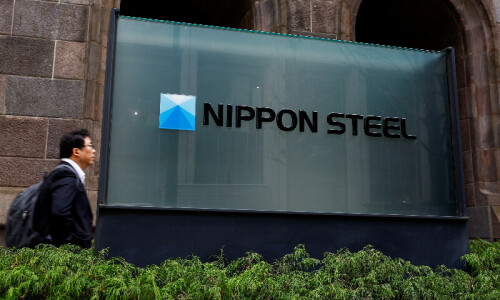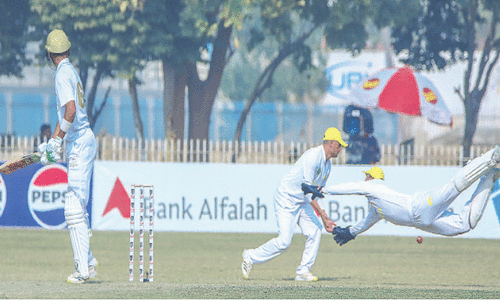WASHINGTON: “How can a man in a cave outcommunicate the world’s leading communications society?”
That question was posed by a former US diplomat, Richard Holbrooke, six weeks after the Sept 11, 2001, attacks on New York and Washington. It referred to Osama bin Laden and Al Qaeda’s skill in mixing modern media technologies and medieval theology. The quote’s assertion has become oft-repeated conventional wisdom.
US Defence Secretary Robert Gates echoed the theme in a speech last November. “Public relations was invented in the United States, yet we are miserable at communicating to the rest of the world what we are about as a society...It is just plain embarrassing that Al Qaeda is better at communicating its message on the Internet than America.”
Is it really? Or do such statements exaggerate the internet skills of militant Islamists and underplay self-inflicted American public relations wounds, from Guantanamo and Abu Ghraib to support for Israel and the wars in Iraq and Afghanistan? They provided useful ammunition for anti-American propaganda but did not require special internet expertise to reach an audience of billions.
Al Qaeda is nearing the 20th anniversary of its foundation, next August, and there are signs that the movement is having an increasingly hard time maintaining the lustre of what has become a globally recognised brand.
By the US Army’s count, there are around 6,500 websites that propagate jihadist violence. They form, in the words of Major-General Anthony Cuculo, chief of Army Public Affairs, a “virtual caliphate” which uses the internet as a safe haven.
But despite the proliferation of websites, despite slickly-produced “kill Americans” videos, a series of polls by respected organisations show that popular sympathy for terrorist acts is declining in Arab societies even though the image of the United States remains bleak. Disliking US foreign policy and supporting the murder of civilians do not go hand in hand.
“Among the most striking trends in predominantly Muslim nations is the continuing decline in the number saying that suicide bombings and other forms of violence are justifiable in the defence of Islam,” according to the Pew Global Attitudes poll. “The decreasing acceptance of extremism among Muslims also is reflected in declining support for Osama bin Laden.”
If Al Qaeda’s internet presence were as effective as it is usually portrayed to be, these percentages should be going up, not down.
OBSOLETE INTERNET TECHNIQUES: For Al Qaeda and its affiliates, the internet can be a double-edge sword: the people who frequent their websites also read opposing views in debates over Islamic theory. Example: a lengthy document by Sayid Imam Sharif (better known as Dr Fadl), one of the chief ideologues of Al Qaeda’s doctrine. The document condemns the killings of civilians, says the war Osama bin Laden declared against America has created major problems for Islam, and even calls for an Islamic court to try Osama and his number two, Ayman al-Zawahiri.
As to their supposed dominance of the internet, a just-published study concludes that the techniques that made Al Qaeda a household name are rapidly becoming obsolete, chiefly because the movement’s propaganda chiefs are now intent on maintaining strict message control. They have been building up an editorial bureaucracy that resembles the structure of traditional mainstream media.
“If Web 1.0 was about creating the snazziest official web resource and Web 2.0 is about letting users run wild with self-created content and interactivity, Al Qaeda and its affiliates are stuck in Web 1.0,” says the report’s author, Daniel Kimmage, who is a senior analyst at Radio Free Europe.
Kimmage says the bureaucratisation of jihadist web material goes back to a 2006 policy paper entitled Media Exuberance.
Complete with case studies, definitions and recommendations, it was produced by the corporately-named “Jihadist Media Development Unit” of the Al Boraq Media Organisation, a propaganda arm of Al Qaeda in Iraq.
It severely criticised “the distribution of jihadist audio and video products without official sanction or permission from the producer, the distribution of statements by jihadist groups under personal names and user IDs, (and) the release of personal (audio and video) products and works under the names of jihad groups.”
Such practices, the paper said, undermined the credibility of jihadist media and distracted attention from “official sources”. In other words: don’t just load your material on the internet, leave it to the professionals.
Those professionals are active in Media Production and Distribution Entities (MPDE) that put material on sites with official “brand name” logos instantly recognisable when they are posted to forums.
“They have a problem,” said Kimmage, “they are caught between wanting to get their message out and maintaining control. It’s like saying ‘we want to clear that press release.”
In an open internet environment, how effective will that be?” If the polls are right, not very.—Reuters














































Dear visitor, the comments section is undergoing an overhaul and will return soon.